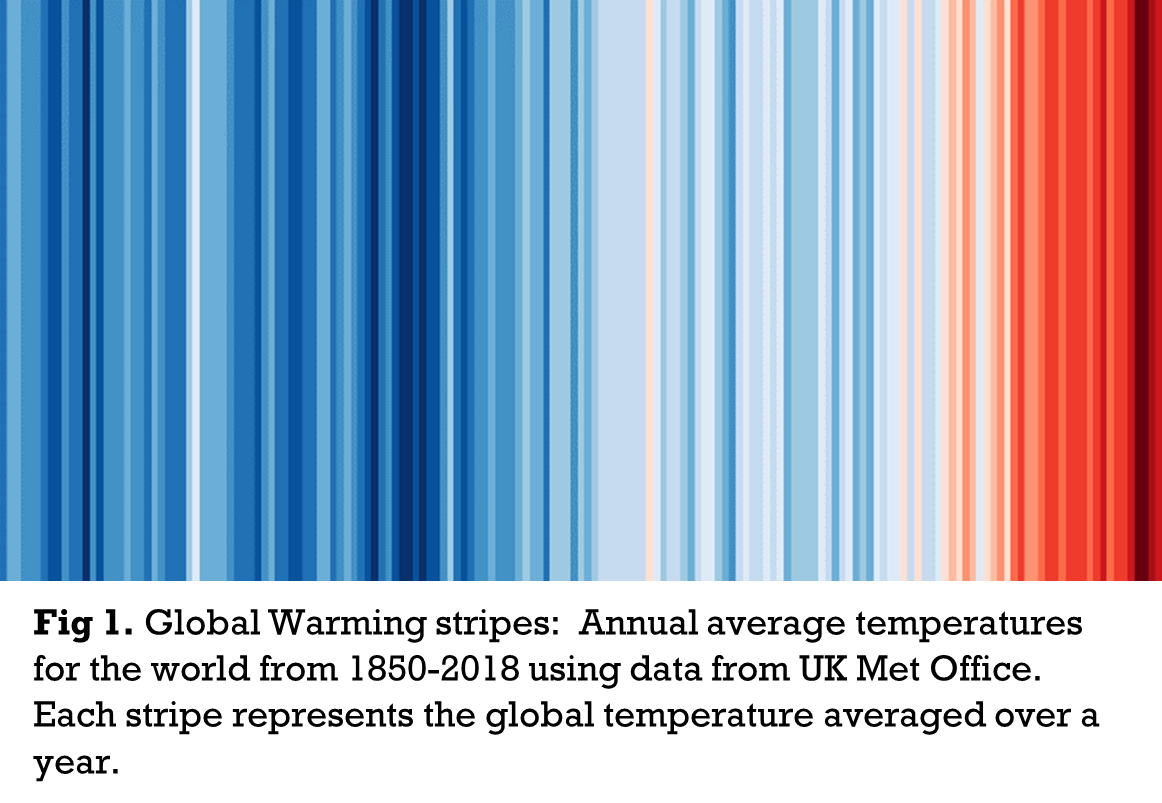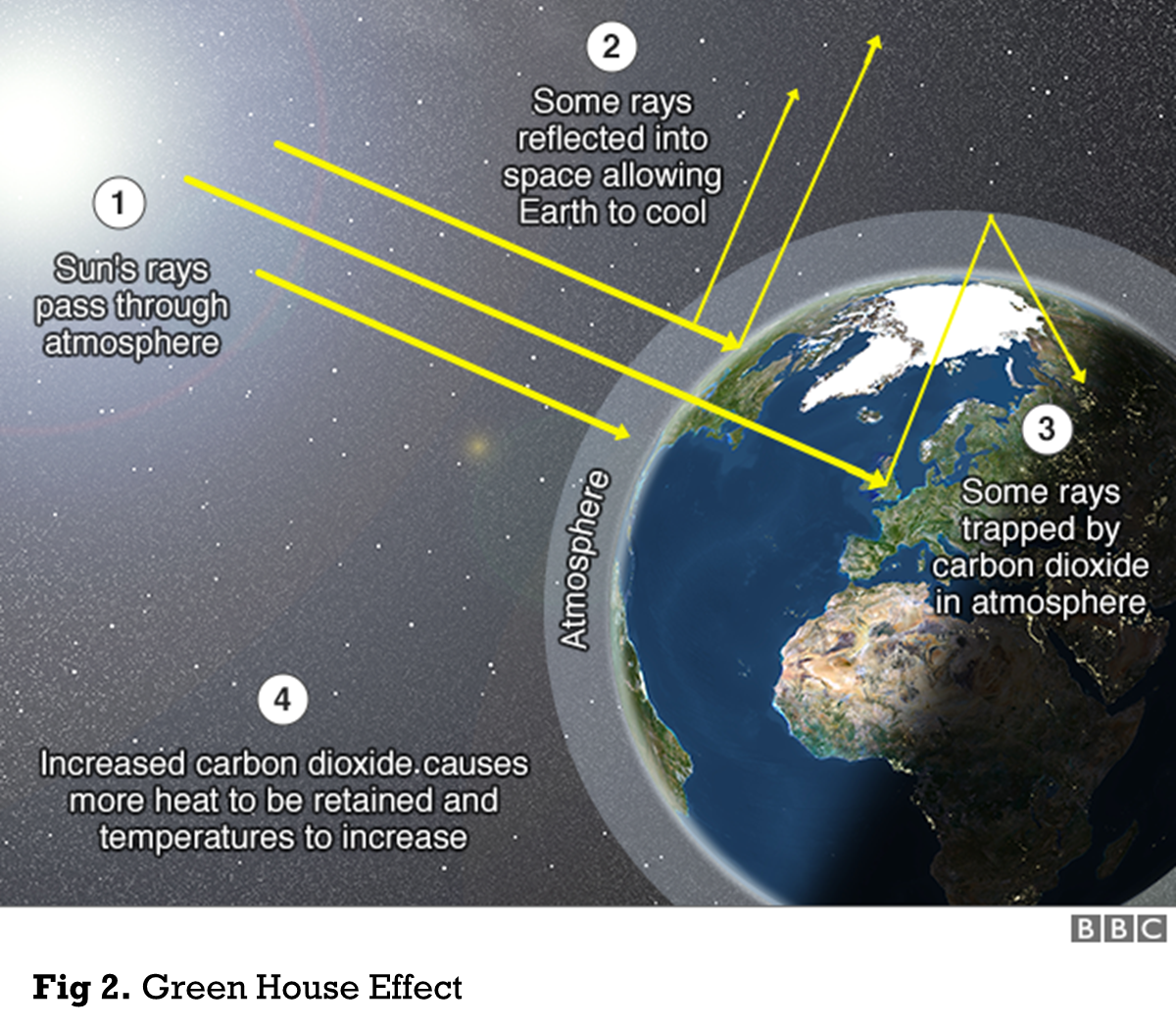What is the Climate Crisis?
The climate crisis refers to the long-lasting changes to the global climate (e.g. changes in precipitation patterns and increased prevalence of extreme weather events) observed in last few decades, attributed to the human-induced rise in the average global temperature. The terms 'Climate Crisis' or 'Climate Emergency' or 'Climate and Ecological crisis' have been used instead of "Climate Change" to better reflect the urgency in mitigation actions needed.
Currently, the Earth is approximately 1°C hotter than pre-industrial temperatures and this has had major implications for ecosystems, growing seasons, animals and their habitats.
How does the current warming period compare to the past?
 The Earth’s climate has naturally fluctuated over geological time. Although the average temperature of the Earth is 15°C now, evidence has suggested it has been much higher and lower in the past. Evidence for this historic climate change is visible in a wide range of geological settings, including marine and lake sediments, ice sheets, fossil corals, stalagmites, and fossil tree rings. Geologists have also been able to relate some of these climate change records with geological events such as volcanic activity or changes in energy received from the sun.
The Earth’s climate has naturally fluctuated over geological time. Although the average temperature of the Earth is 15°C now, evidence has suggested it has been much higher and lower in the past. Evidence for this historic climate change is visible in a wide range of geological settings, including marine and lake sediments, ice sheets, fossil corals, stalagmites, and fossil tree rings. Geologists have also been able to relate some of these climate change records with geological events such as volcanic activity or changes in energy received from the sun.
However, the warming period we are experiencing now is occurring much more rapidly than before due to human emissions. Increased fossil fuel emissions have upset the natural energy balance that allows life on earth to survive – the greenhouse effect.
What is the greenhouse effect?
 Our planet is surrounded by a blanket of gases which keeps the surface of the earth warm and habitable through a process known as the greenhouse effect.
Our planet is surrounded by a blanket of gases which keeps the surface of the earth warm and habitable through a process known as the greenhouse effect.
The greenhouse effect describes the way some gases in the atmosphere (such as carbon dioxide, nitrous oxide, and methane) trap some of the sun’s energy after it is reflected from the Earth's surface. This is a natural process that has been happening for billions of years, and without it the earth would be about 33°C colder – too cold for us to live on.
Since the beginning of the Industrial Revolution, we have released a lot more of these greenhouse gases by burning lots of fossil fuels for energy, cutting down forests and using intensive agricultural practices. Although CO2 is naturally removed from the atmosphere via weathering and photosynthesis, we are releasing CO2 much faster than the Earth can remove it. The blanket of greenhouse gases is now thicker. As a result, more heat is being trapped within our atmosphere, raising global temperatures.
Human impact on the planet has been significant enough that some scientists believe that we are in a new geological time subdivision - Anthropocene.
Climate Change or Global Warming?
The terms ‘global warming’ and ‘climate change’ are often used interchangeably in the media. Scientifically, they mean different things:
- Global Warming refers to the long-term rise in the Earth’s average surface temperature due to rising levels of greenhouse gases.
- Climate Change refers to any changes in the regional or global climate patterns. The Earth’s climate has naturally fluctuated, but this recent period of change has been much more rapid.
